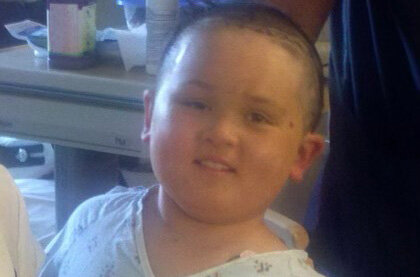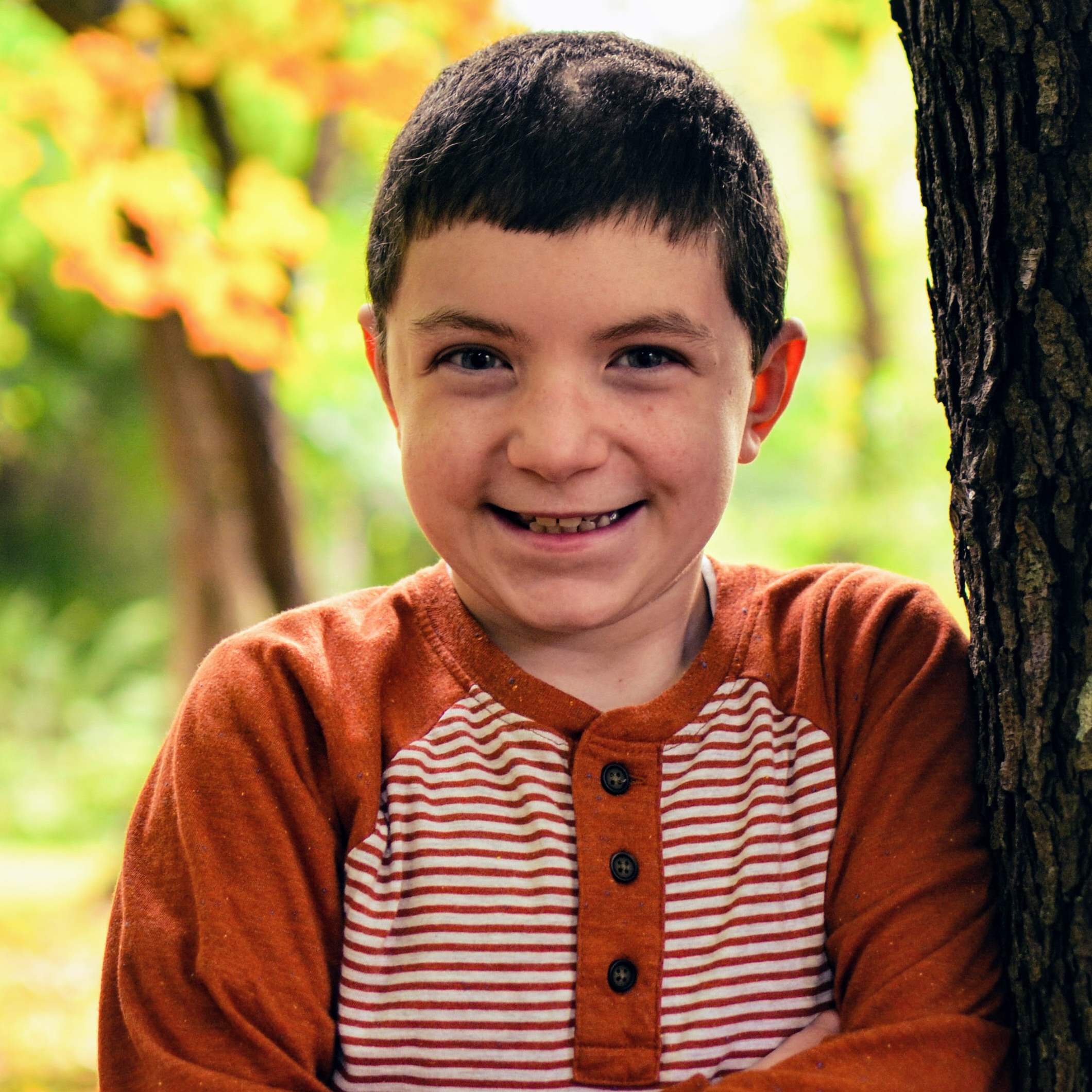
Meet Franklin Knowles, Our Latest Handheld Blood Analyzer Recipient
Meet Franklie Knowles, 10, our latest handheld blood analyzer recipient. Frankie was diagnosed with a pilomyxoid astrocytoma (PMA) when he was 6 years old and difficulty managing sodium levels have persisted long after almost all other tumor complication has stabilized. He has had several hyponatremic seizures that resulted in hospitalizations.

The Raymond A. Wood Foundation Launches ROAR for RARE
The Raymond A. Wood Foundation (RAWF) – a patient-led, rare disease advocacy organization – announces the launch of ROAR for RARE, a campaign to raise $500,000 over the next year and a half to fund four critically needed projects that will drastically improve the quality of life for hypothalamic-pituitary (H-P) brain tumor survivors.
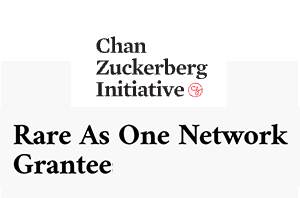
Raymond A. Wood Foundation Named Grantee of Chan Zuckerberg Initiative Rare As One Network
Ocean City, MD (November 3, 2021) — It was announced today that the Raymond A. Wood Foundation (RAWF), a patient-led, rare disease advocacy organization for survivors of hypothalamic-pituitary brain tumors, has been selected as a grantee of the Chan Zuckerberg Initiative (CZI) Rare As One Network, aimed at supporting and lifting up the work that patient communities are doing to drive progress in the fight against rare diseases.
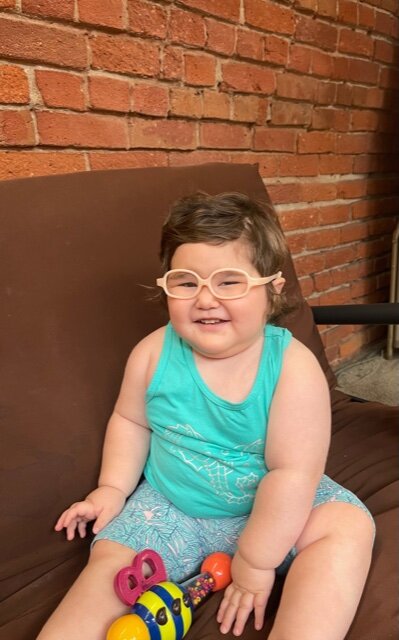
Craniopharyngioma survivor, Azalea, age 2, receives blood analyzer
Meet Azalea, 2, a silly music loving two year old who lives in Sacramento, California.
Azaleas parents started this journey with a couple of trips to the ER due to episodes of non-specific vomiting, and received the most devastating news a parent is ever prepared for. On the 14th of September 2020, Azalea was diagnosed with a very large craniopharyngioma for her tiny brain and body.

Hypothalamic Obesity Update in NORD’s Rare Disease Database

Hope for HO through Oxytocin
In 2016, my son was 13 years old and a 5-year-survivor of a brain tumor called craniopharyngioma. While we were grateful that he had survived the tumor and surgery, his quality of life was poor due largely to hypothalamic obesity with hyperphagia, a cruel condition characterized by symptoms including uncontrollable hunger and rapid weight gain. To prevent him from eating as much as his ravenous appetite dictated, we resorted to locking up all food and keeping a constant watch of him lest he steal food. It was an exhausting, depressing, and unsustainable lifestyle.
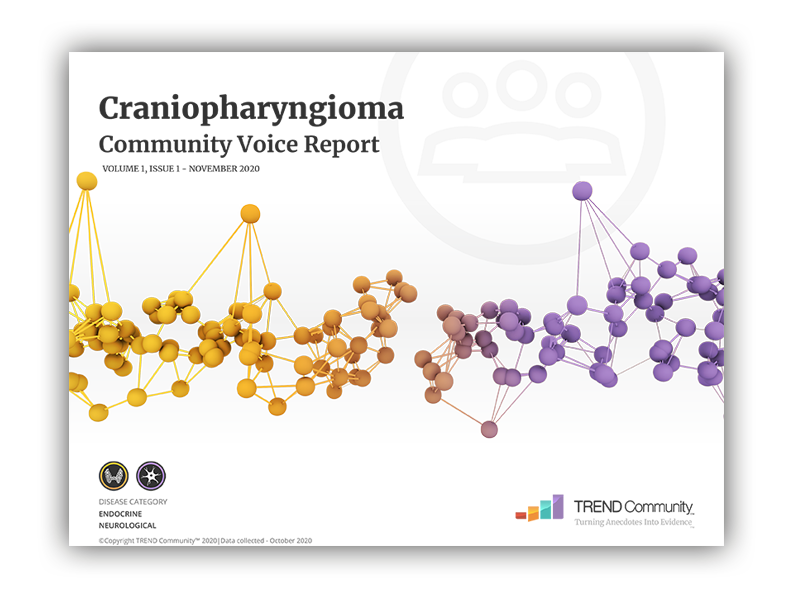
Community Voice Report Provides Insight Into Topics Discussed Among Craniopharyngioma Community
In late 2020, Raymond A. Wood Foundation engaged TREND Community with support of the Craniopharyngioma Survivors Facebook Group to analyze topics discussed in the group to produce the Community Voice Report. The Community Voice Report follows the FDA’s patient input Guidelines for Patient-Focused Drug Development meetings and aims to quantify disease burden, disease management strategies, and possible unmet needs.

Hailey, a JPA Survivor, Receives Handheld Blood Analyzer
Hailey Lamca of Basking Ridge, New Jersey, was a healthy, active kid who loved to play soccer and excelled in school, but in 2017, she was diagnosed with a hypothalamic juvenile pilocytic astrocytoma (JPA) at the age of 12.
Since her diagnosis she has had 11 surgeries and 6 weeks of proton radiation therapy and is now living with the side effects of her treatment.
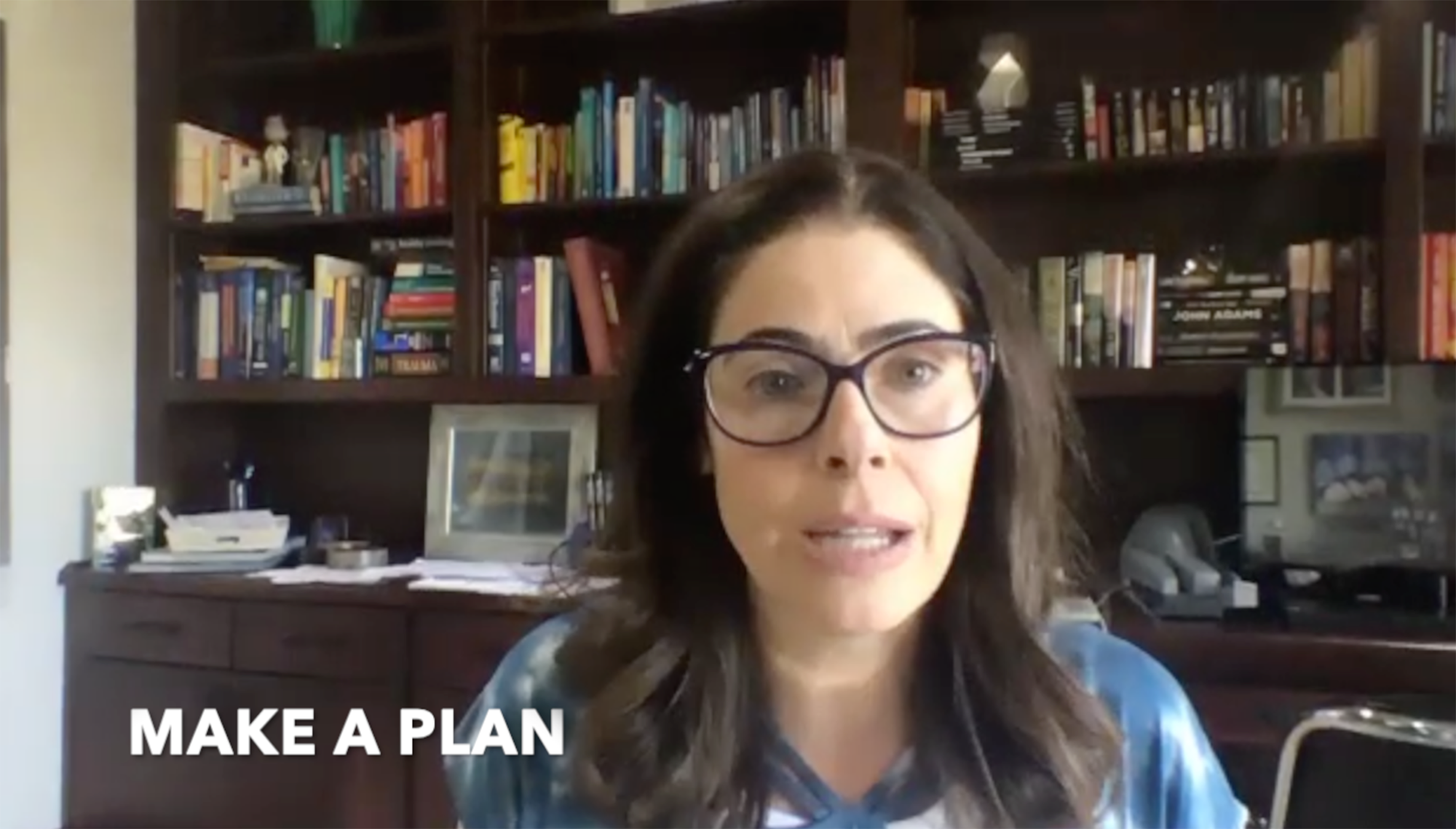
Managing the Holidays and Hypothalamic Obesity
It’s that time of year where food is plentiful for most of us. COVID-19 may change how we celebrate the holidays, and turning to food as comfort may even be more of an issue this year. For those with hypothalamic obesity (HO) or caregivers of survivors with this condition, this time of year can be the most challenging. Marci Serota, RDN, HO expert shares advice for dealing with the holiday food situations.

